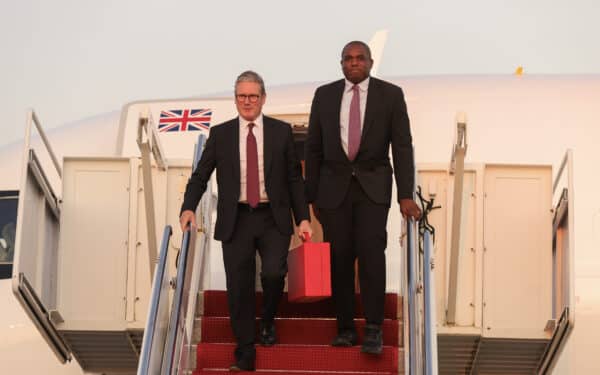Two months to the day since the general election, Keir Starmer and Rishi Sunak went head-to-head for the first PMQs following the summer recess. Now firmly out of his honeymoon period, it was inevitable that Starmer would face a tougher test.
The PM was grilled by Sunak over fiscal policy, and Labour’s public spending priorities.
The former Prime Minister accused Starmer of choosing “train drivers over Britain’s most vulnerable pensioners” by handing the former group “inflation-busting pay rises” while simultaneously scrapping winter fuel payments of up to £300 this month for 10 million pensioners. Why, asked Sunak, should a train driver on £65,000 get a £10,000 pay rise, while a pensioner on £13,000 loses money?
This line of attack was well-timed. Analysis of official figures by former pensions minister Steve Webb, out today, reveals that five out of six pensioners living below the poverty line will lose their £300 winter fuel payments under Chancellor Rachel Reeves’s cost-cutting plans.
Sunak also received a helping hand from the Lib Dem leader, Ed Davey, who piled further pressure on Starmer by underlining just how difficult it would be to explain his decision to cut winter fuel payments to the pensioners missing out.
Yet Sir Keir refused to accept that he has warped priorities. He defended the government’s pay offers to end strike action, insisting: “you cannot fix the economy if the trains don’t work and you can’t fix the economy if the NHS isn’t working.”
As for the blow his party has dealt to pensioners, Starmer insisted the government had to take “tough decisions to stabilise the economy”. Again, he laid blame with the Tories, pointing to the “£22 billion black hole” in the country’s public finances inherited by his government.
This was rebuffed by Sunak, who reasserted that the economy Starmer had inherited was not in the dire state that Labour made it out to be. Inflation, he pointed out, was back at target and interest rates have been cut.
Aside from rows over public finances, the leader of the opposition was also critical of the government’s decision to suspend some arms export licenses to Israel, questioning how it will help in the effort to release hostages still held by Hamas and whether Britain, under Labour rule, still stands behind Israel.
Starmer insisted the partial Israel arms halt was a “legal decision, not a policy decision”. He insisted too that Britain’s allies “understand” the move. His latter claim will be met with scepticism. The US has said that it will not follow Britain in suspending arms sales to Israel, and is thought to have privately warned Starmer against imposing such a measure.
Write to us with your comments to be considered for publication at letters@reaction.life




